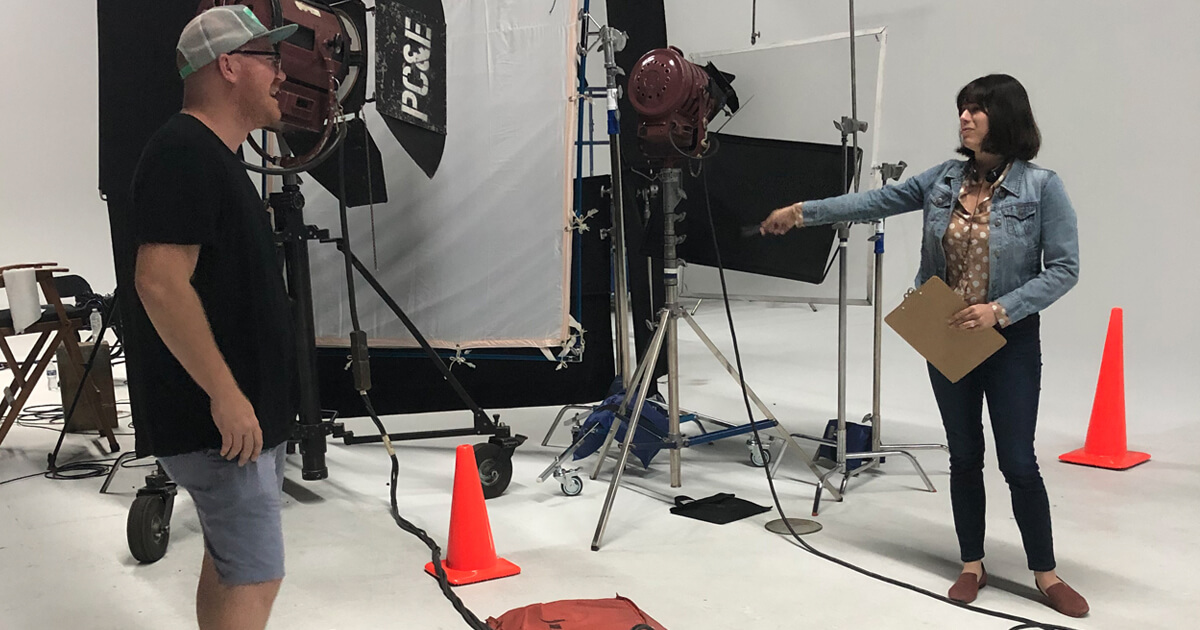Recognizing Event Production: Why It Is Very Important for Successful Celebrations
Event production plays a crucial duty fit successful gatherings. It includes mindful planning, sychronisation, and implementation to assure every detail lines up with the event's vision. This procedure not just boosts guest experiences however also facilitates purposeful connections amongst individuals. Recognizing the intricacies of event production can considerably influence the overall result. What are the crucial elements that add to a successful event, and exactly how can they be properly managed?
The Role of Event Production in Developing Unforgettable Experiences
Although several variables add to the success of an occasion, event production plays a critical function in crafting memorable experiences. This multifaceted procedure encompasses different elements, consisting of planning, logistics, and execution. Reliable event production assurances that every detail straightens with the overall vision, producing a smooth circulation that captivates participants. By collaborating timelines, taking care of resources, and supervising technical facets, event producers establish a foundation for impactful experiences.Moreover, they curate environments that reverberate with the target audience, improving interaction and emotional connection. From selecting suitable venues to integrating innovative innovation, the options made throughout production considerably influence how attendees view and remember the event. By prioritizing quality and attention to detail, event production transforms regular gatherings into remarkable moments, leaving long lasting perceptions. Ultimately, the competent orchestration of these parts defines the essence of an event, showcasing the importance of specialist event production in achieving outstanding results.
Secret Parts of Successful Event Production
Efficient event production rests on numerous essential components that ensure success. Preparation and sychronisation develop a solid foundation, while technical setup demands resolve logistical requirements. In addition, applying audience involvement methods boosts the general experience, making the event memorable.
Planning and Control
Preparation and control work as the backbone of effective event production, guaranteeing that every information lines up seamlessly to produce a remarkable experience. Effective preparation involves developing a clear vision and goals, while control entails the meticulous company of logistics, routines, and resources. A well-defined timeline is important, guiding all stakeholders with vital milestones and tasks. Communication plays an essential function, fostering collaboration among group members, vendors, and place personnel. Normal meetings and updates assist to resolve obstacles immediately, guaranteeing that everyone stays aligned with the event objectives. Ultimately, an organized strategy to preparation and control not only improves efficiency but also considerably adds to the general success and satisfaction of the event for participants and organizers alike.
Technical Arrangement Needs
A successful event depends greatly on its technical arrangement needs, which include important components such as audio-visual equipment, lights, staging, and connectivity. Audio-visual equipment consists of microphones, audio speakers, and projectors, ensuring that discussions and performances are delivered plainly. Proper lights boosts the ambiance and highlights vital locations, while staging offers the needed system for audio speakers and performers. Connection, consisting of Wi-Fi and electrical gain access to, is important for smooth communication and technology integration. Each element must be meticulously intended and executed, tailored to the event's details needs. Insufficient technical setups can result in disruptions, negatively impacting the general experience for guests, highlighting the significance of complete prep work and attention to information in event production.
Audience Engagement Strategies

The Importance of Planning and Sychronisation
Planning and sychronisation are vital to the success of any event production. Effective timeline administration, source appropriation strategies, and team interaction characteristics play necessary functions in ensuring that all elements collaborated effortlessly. Without a structured method to these facets, events run the risk of dealing with hold-ups, spending plan overruns, and miscommunication among staff member.
Effective Timeline Administration


While successful event production commonly hinges on creative thinking and implementation, efficient timeline administration stays a vital component that can not be ignored. A well-structured timeline functions as the backbone of any type of event, guaranteeing that each stage is implemented in a prompt manner. It enables the coordination of various tasks, from location arrangement to visitor arrivals, while protecting against possible bottlenecks. By clearly detailing deadlines and obligations, event planners can maintain emphasis and adapt to unforeseen difficulties. Additionally, a thoroughly crafted timeline promotes communication amongst employee, promoting accountability and cooperation. Ultimately, reliable timeline administration not only improves functional efficiency browse around these guys however likewise adds considerably to the general success and smooth implementation of the event, leaving participants with a remarkable experience.
Resource Allocation Methods
Effective source appropriation techniques are essential for the successful implementation of any kind of event. Proper preparation enables event organizers to identify and distribute sources, such as finances, personnel, and materials, in a manner that makes best use of effectiveness. By evaluating the particular demands of each aspect of the event, coordinators can prioritize tasks and assign resources appropriately. Coordination among various divisions ensures that all components, from catering to audiovisual demands, are appropriately sustained. This calculated technique not only minimizes waste however likewise improves the general experience for attendees. Furthermore, anticipating prospective difficulties and having backup strategies in location enables smoother operations. Ultimately, reliable source allocation contributes considerably to achieving event objectives and guaranteeing a remarkable event.
Group Interaction Characteristics
Exactly how can smooth interaction amongst group members change the event production procedure? Efficient communication is important for coordinating tasks, sharing updates, and attending to obstacles in real-time. When employee take part in open dialogue, they dig this can promptly identify prospective issues and create remedies collaboratively, reducing delays and misunderstandings. This dynamic fosters a natural atmosphere where everyone comprehends their functions and obligations, causing a much more integrated initiative. Additionally, regular check-ins and feedback loops improve liability and warranty positioning with the event's purposes. By focusing on interaction techniques, teams can improve process, reinforce morale, and ultimately boost the overall quality of the event. Effective events pivot on the ability to communicate successfully, making it a necessary element of event production.
Enhancing Attendee Engagement Via Innovative Layout
Creative layout plays a critical role in boosting attendee interaction at events, as it cultivates an immersive setting that astounds individuals' focus. By incorporating ingenious visuals, interactive aspects, and thematic design, event organizers can create memorable experiences that reverberate with attendees. Thoughtful layout styles promote motion and expedition, urging visitors to connect with screens and each other.Incorporating modern technology, such as enhanced reality or live polling, further enriches the experience, permitting real-time feedback and interaction. In addition, sensory elements like lights, audio, and fragrance can evoke emotions and create a more appealing atmosphere.The use storytelling via style aids convey the event's function and message, making it extra relatable for participants. Ultimately, innovative layout not just improves engagement however likewise strengthens connections amongst individuals, leaving a lasting impression that prolongs past the event itself. This calculated strategy to layout is necessary for successful celebrations.
Managing Logistics for a Smooth Implementation
While the excitement of an event can attract guests in, managing logistics is essential to secure a seamless execution. This includes thoroughly working with various elements, from venue selection and layout to food catering and transport. Effective logistics administration ensures that all elements align, permitting a smooth circulation from enrollment to the final thought of the event.Additionally, a clear communication strategy among all stakeholders is critical. This includes personnel, vendors, and volunteers, that need to be educated of their duties and obligations. Preparing for prospective challenges, such as equipment failure or unforeseen weather, can even more improve the event's success.Creating a comprehensive timeline assists keep the team on track and enables for timely changes. Eventually, well-managed logistics not just facilitate a delightful experience for participants but likewise mirror the professionalism and trust and dependability of the coordinators, contributing to the overall success of the gathering.

The Impact of Innovation on Event Production
What duty does technology play in forming contemporary event production? Modern technology has ended up being a cornerstone of reliable event production, enhancing both preparing and execution processes. From advanced registration systems to interactive applications, technology improves participant monitoring and boosts interaction. Digital event systems enable organizers to get to bigger audiences, damaging geographical obstacles and assisting in hybrid events that integrate in-person and on-line experiences.Additionally, audiovisual modern technologies, such as high-def displays and stereos, elevate the top quality of discussions and efficiencies, making sure a remarkable experience for participants - event production charlotte. Social network combination enables real-time comments and interaction, promoting community involvement previously, during, and after the event. Data analytics devices aid organizers in checking participant behavior and choices, allowing tailored experiences that reverberate with diverse audiences. Overall, the combination of innovation in event production not only improves functional effectiveness however also enriches guest experiences, eventually adding to the success of the event
Reviewing Success: Determining the End Results of Your Event
Success in event production rests on effective assessment, which entails gauging a blog here variety of outcomes to examine the total impact of an event. To attain this, coordinators can utilize both qualitative and measurable metrics. Quantitative measures may include attendance figures, ticket sales, and earnings created, while qualitative assessments could involve guest fulfillment surveys and responses forms.Additionally, evaluating social media engagement and media coverage can provide understandings right into the event's reach and brand name effect. Comparing these metrics against predefined goals helps determine if the objectives were met.Furthermore, post-event debriefs with the planning group can reveal lessons found out and areas for enhancement. By methodically evaluating these outcomes, event manufacturers can enhance future gatherings, ensuring continuous growth and success. Inevitably, a thorough evaluation not only highlights achievements however likewise notifies critical decisions for succeeding events, fostering a society of quality in event production.
Often Asked Questions
What Certifications Should an Event Manufacturer Have?
Event producers ought to possess solid business skills, imagination, and effective communication abilities. A background in task administration, budgeting, and negotiation is important. Relevant accreditations and experience in diverse event types additionally enhance their credentials.
Exactly How Can I Lower Event Production Costs Efficiently?
To properly reduce event production prices, one can improve vendor choice, negotiate contracts, use in-house sources, focus on crucial aspects, implement modern technology for effectiveness, and discover sponsorship possibilities to counter costs without compromising top quality.
What Are the Usual Challenges in Event Production?
Common obstacles in event production consist of budget plan restraints, logistical control, supplier monitoring, time restrictions, guest involvement, technological problems, and unexpected circumstances - event production charlotte. Each aspect can greatly impact the overall success and smooth implementation of the event
How Do I Select the Right Place for My Event?
Selecting the ideal venue involves taking into consideration variables such as location, capability, facilities, and budget. Furthermore, evaluating accessibility and setting guarantees the chosen room lines up with the event's objectives and boosts the overall participant experience.
What Is the Typical Timeline for Preparation an Occasion?
The normal timeline for preparing an event varies, but usually includes phases such as principle advancement, location option, vendor sychronisation, promo, and final prep work, often extending numerous months to ensure an effective implementation.